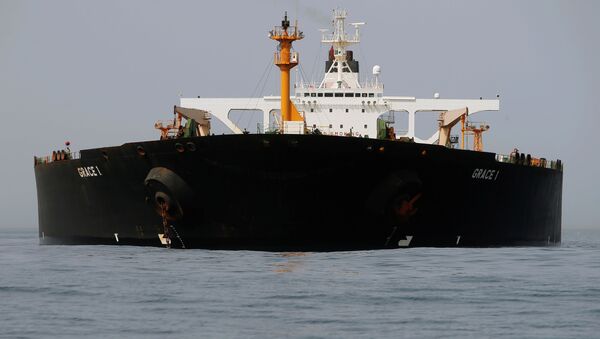Gibraltar Chief Minister Fabian Picardo said that the Grace 1 would be released on Thursday, adding that Gibraltar authorities would not renew the order to detain the oil tanker, The Sun newspaper reported.
Gibraltar detained the tanker after suspecting that the Grace 1 was smuggling oil to Syria in violation of European Union sanctions on the county. The captain and three crew members were detained as part of the investigation.
According to The Sun, the captain of the Grace 1 reportedly gave the Gibraltar Chief Minister a written undertaking, and Picardo would not ask a judge to extend the detention during a court hearing on Thursday.
The situation prompted Iran to tighten its control over the Strait of Hormuz and the Persian Gulf. On 19 July, Tehran seized the UK-flagged tanker Stena Impero in its territorial waters. It is now in the Bandar Abbas port, with all the 23 crew members remaining on board.
The vessel seizures came amid growing tensions in the Persian Gulf after a previous series of incidents also involving oil tankers. In May, four oil tankers were targeted in sabotage attacks off the United Arab Emirates' coast. In June, two more oil tankers were hit by explosions in the Strait of Hormuz, the body of water that connects the Gulf of Oman with the Persian Gulf.
Washington blamed Tehran for the incidents and started building up its military presence in the Gulf. Tehran has repeatedly denied any wrongdoing.
Iran subsequently shot down a US surveillance drone over the coastal Hormozgan area, in Iranian airspace Washington, in turn, has claimed that the drone had been downed in neutral airspace.
Reacting to these developments, US President Donald Trump initially said Iran made "a very big mistake" but later told reporters that he doubted the drone was shot down intentionally. Some US lawmakers, however, have called for taking action against Tehran over the incident.
Washington has reportedly been attempting to build a coalition to secure shipping in the strait, through which a third of all seaborne crude oil passes.
US-Iran relations deteriorated after Trump unilaterally withdrew the United States from the Joint Comprehensive Plan of Action (JCPOA) treaty, also known as the Iran nuclear deal, last spring. The US proclaimed it would bring Iran’s sale of oil down to zero and re-introduced sanctions on almost all major sectors of the Iranian economy.
In May, Tehran announced it would partially suspend obligations under the JCPOA and gave the other agreement signatories 60 days to save the accord by facilitating oil exports and trade with Iran. After the deadline expired, Iran said it would begin enriching uranium beyond the 3.67 percent level set in the JCPOA and warned it would gradually abandon its nuclear commitments every 60 days.


